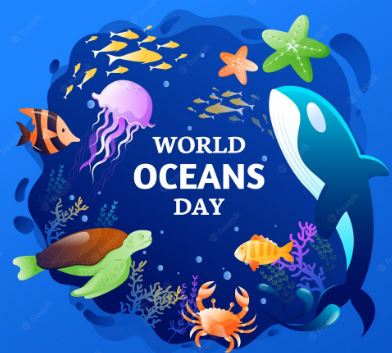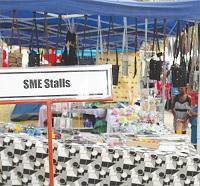
SADC Member States and partners called to implement policies and programmes that will reduce plastic pollution

By HE Elias Magosi
Executive Secretary of SADC.
The Southern African Development Community (SADC) joins the global fraternity to commemorate this year’s World Ocean Day with a call for our region to enhance the conservation of oceans, including coastal areas, and their resources.
The state of our oceans calls for SADC Member States and partners to implement policies and programmes that will reduce plastic pollution, expand the protection of marine areas, enhance the tackling of illegal fishing, and promote responsible fishing practices.
In support of this year’s theme “Planet Ocean: Tides are Changing”, as a region, we need collaborative action to protect our marine species and ecosystems, and combat land-based pollution that ends up in our oceans, mainly in coastal areas.
In this regard, I appeal to develop effective monitoring and mechanisms to ensure compliance with existing regulations as outlined in the SADC Protocols for Fisheries, and Wildlife Conservation and Law Enforcement, and also in existing Regional Strategies on Biodiversity, Fisheries Monitoring Control and Surveillance, Green Economy and Climate Change.
To complement existing policy instruments and frameworks, the SADC region is finalising the development of Regional Strategies on the Blue Economy, Circular Economy, and Action Plan to Combat Marine Pollution to adequately conserve oceans to secure the sustainable development of our countries and the livelihoods of local communities.
I hope that Member States in our region, and all stakeholders will collaborate in promoting sustainable development in the ocean or blue economy, through investments in renewable energy, marine tourism, and sustainable aquaculture as key drivers of economic growth.
As part of our commemoration of this important day, the SADC Secretariat will join hands with the Food and Agriculture Organisation (FAO), the South West Indian Ocean Commission (SWIOFC), and the World Wide Fund for Nature (WWF) to highlight some of the key challenges that fisheries in the South West Indian Ocean (SWIO) are experiencing, and what the sub-region has been doing to protect the resources, including building resilience and adaptive capacities for coastal communities to withstand the effect of climate change.
This will be done during the 12th Session of the South West Indian Ocean Fisheries Commission taking place in Maputo, Mozambique from 06-09 June.
The team will also welcome the EAF-Nansen Research Vessel, Dr Fridtjof Nansen in Maputo Port, in Mozambique on 08 June 2023, during a high-level Call to Port event to commemorate World Oceans Day. The Research Vessel is currently doing fisheries and oceanic surveys in the waters of the SADC coastal States, under the FAO EAF-Nansen Programme with the theme: “Supporting the Application of the Ecosystem Approach to Fisheries Management Considering Climate and Pollution Impacts”.











































